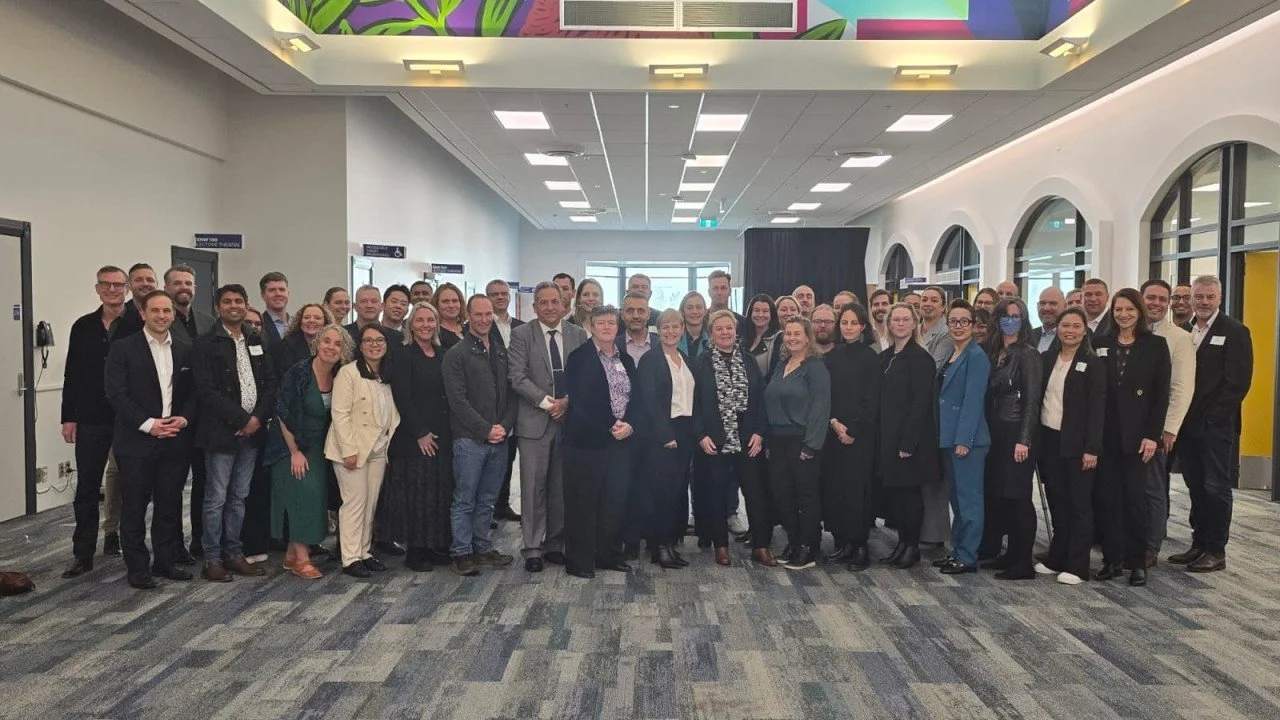Why Business: Learning to Lead Systems Through an Executive MBA
Photo of both the Airport and Albany Cohort of EMBA students, business leaders and lecturers
Why Business?
People sometimes ask me: Why are you, with such a strong background in human rights and health equity, studying business?
The answer is this: because systems don’t change by passion alone. They change when you understand power, governance, finance, strategy, and leadership.
That’s why I chose to enrol in an Executive MBA at Massey University - Te Kunenga ki Pūrehuroa. I wanted to sharpen the tools I already had, learn new frameworks, and be able to apply them not just in one sector, but across health, disability, Rainbow advocacy, Indigenous leadership, and international human rights.
“For me, business is not about profit alone. It is about building resilient, values-driven systems that serve people better.”
The Challenge of Leadership Across Sectors
I’ve spent most of my career in health and human rights spaces that are often underfunded, under pressure, and expected to deliver miracles without resources.
I know what it feels like to stand in boardrooms where the language is corporate, the frameworks are commercial, and the people around the table expect polished business cases. If you can’t speak that language, your kaupapa risks being dismissed.
That is why business knowledge matters. To make a change, you have to translate equity into metrics. You have to turn values into strategy. You have to make the case for inclusion not only morally, but economically.
Studying for my EMBA means grappling with case studies, financial models, operational strategies, and leadership theory, all of which I can carry back into the spaces I already lead.
Frameworks as Tools for Equity
What excites me most about my EMBA is not the textbooks, but the frameworks. Tools like:
Porter’s Five Forces: to understand the pressures shaping health, NGOs, and Rainbow movements.
SWOT and PESTEL analysis: to identify not only risks and opportunities in organisations, but systemic inequities that might otherwise be ignored.
Kotler’s Marketing Principles: to think about how social change campaigns (like marriage equality or disability inclusion) can reach wider audiences.
Balanced Scorecards and KPIs: to measure not just financial performance, but equity outcomes and belonging.
Change Management Models: to navigate the resistance every leader encounters when embedding DEIB, disability equity, or Māori perspectives into mainstream systems.
These frameworks allow me to look at the same problems, disability health gaps, Rainbow representation, and Māori equity, with new eyes. They allow me to argue for systemic change in ways that resonate with both community and corporate leaders.
“Business frameworks, when applied with aroha, can become tools for justice.”
My Why for Business Study
So why business? Why an EMBA?
Because I want to bring the same rigour that corporations apply to profit into the spaces I work in, but in service of equity, inclusion, and transformation.
Because I want to be able to sit at any table, Executive Leadership table, boards, NGO governance meetings, UN forums, or iwi leadership groups, and bring both lived experience and strategic frameworks.
Because I believe that leadership today must be intersectional and values-driven, but also commercially literate, globally connected, and future-focused.
And because I want Hiwa-i-te-Rangi, my son, to grow up in a world where Indigenous, disabled, Rainbow leaders are not just present, but leading.
“My why for studying business is simple: to use the language of power to build systems of justice.”
Closing Reflection
Studying for my Executive MBA is not just about career progression. It is about giving me the tools to embed equity across systems that were never designed for us.
Every lecture, every case study, every group project adds another layer to my toolkit. And every time I learn a new framework, I ask myself: How can this help communities that are invisible in mainstream models? How can this tool rebalance power and privilege?
That is my why. To weave together lived experience, cultural identity, and business knowledge, and use them to transform systems for the better.
🔗 Follow me for more reflections on systems change, equity leadership, and human rights diplomacy.
🖤 Ko te pae tawhiti whāia kia tata. Ko te pae tata whakamaua kia tīna. | Seek out the distant horizons so they may become close. Hold fast to the close horizons so they may be secured.


